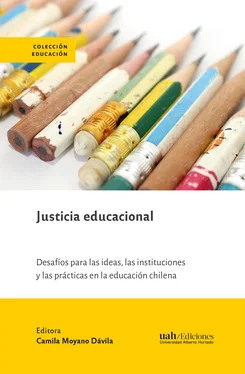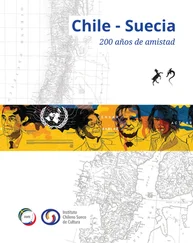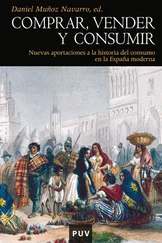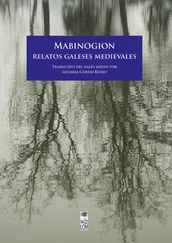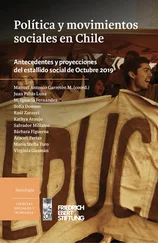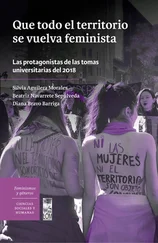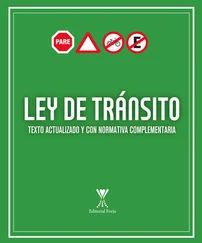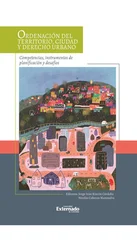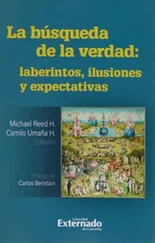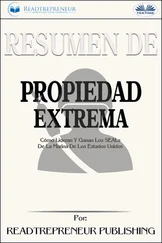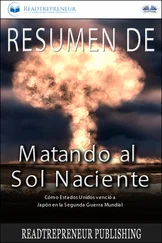Referencias
Aguerrondo, I. (2008). Revisar el modelo: un desafío para lograr la inclusión. Prospects, 38 (1).
Ainscow, M. (2016). Diversity and equity: A global education challenge. New Zealand Journal of Educational Studies, 51(2), pp. 143-155.
Ainscow, M. (2004). Desarrollo de escuelas inclusivas. Ideas, propuestas y experiencias para mejorar las instituciones escolares. Madrid, España: Narcea.
Ainscow, M. y Miles, S. (2008). Por una educación para todos que sea inclusiva: ¿Hacia dónde vamos ahora? Perspectivas, 38 (1), pp. 17-45.
Armijo-Cabrera, M. (2018). Deconstruyendo la noción de inclusión: un análisis de investigaciones, políticas y prácticas en educación. Revista Electrónica Educare, pp. 1-26.
American Psychiatric Association. (2013). Diagnostic and statistical manual of mental disorders (DSM-5®). American Psychiatric Pub.
Baker, B. (2002). The hunt for disability: The new eugenics and the normalization of school children. Teachers College Record, 104 (4), pp. 663-703.
Booth, T. y Ainscow, M. (2002). Index for inclusion: Developing learning and participation in schools. Bristol, UK: Centre for Studies on Inclusive Education.
Booth, T., Ainscow, M., y Kingston, D. (2006). The Index for Inclusion, Developing Play Learning and Participation in Early Years and Childcare. Bristol, UK: CSIE.
Bourdieu, P. y Passeron. J.C. (1981). La reproducción: elementos para una teoría del sistema de enseñanza. Barcelona, España: Laia.
Canto Sáenz, R. (2016). Participación ciudadana, pluralismo y democracia. Nueva Época, (4), pp. 54-75.
Casanova, M. A. (2011). Educación inclusiva: un modelo de futuro. Madrid, España: Wolters Kluwer.
Cerletti, A. (2010). Igualdad y equidad en las políticas sociales y educativas. Revista Acontecimiento, 20 (38-39), pp. 95-104.
Chomsky, N. (2000). Chomsky on miseducation. Lanham, MD: Rowman y Littlefield.
Clark, J. A. (2006). Social justice, education and schooling: Some philosophical issues. British Journal of Educational Studies, 54 (3), pp. 272-287.
Cornejo, J. (2017). Disidencias sexuales en el sistema escolar chileno: represión e invisibilización. Educação e Pesquisa, 43 (3), pp. 879-898.
Cortina, A. (1993). Ética aplicada y democracia radical. Tecnos.
Darling-Hammond, L. (2011). Foreword. En A. Ball y C. Tyson (Ed.), Studying diversity in teacher education (pp. ix-x). Plymouth, UK: Rowman y Littlefield.
De la Puente, J.L.B. (2009). Hacia una educación inclusiva para todos. Revista complutense de educación, 20 (1), pp. 13-31.
Díaz Arce, T. y Druker S. (2007). La democratización del espacio escolar: una construcción en y para la diversidad. Estudios pedagógicos, 33 (1), pp. 63-77.
Dubet, F. (2003). Mutaciones cruzadas: la ciudadanía y la escuela. En J. Benedicto y M. L. Morán (Coord.), Aprendiendo a ser ciudadanos. Experiencias sociales y construcción de la ciudadanía entre los jóvenes. Madrid, España: Injuve.
Echeita, E. (2007). Educación para la inclusión o educación sin exclusiones. Madrid, España: Narcea.
Ernst, W. (2006). The normal and the abnormal. Reflections on norms and normativity. En W. Ernst (Ed.), Histories of the Normal and the Abnormal. Social and cultural histories of norms and normativity. London, UK: Routledge.
Escribano, A. y Martínez, A. (2013). Inclusión educativa y profesorado inclusivo. Madrid, España: Narea.
Escudero, J. M., y Martínez, B. (2011). Educación inclusiva y cambio escolar. Revista iberoamericana de educación, 55, pp. 85-105.
Florian, L. (2008). Special or inclusive education: future trends. British Journal of Special Education, 35 (4), pp. 202-208.
Fraser, N. (2000). ¿De la redistribución al reconocimiento? Dilemas de la justicia en la era pos socialista. New left review, 1, pp. 126-155.
Fraser, N. (2008). Rethinking Recognition: Overcoming Displacement and Reification in Cultural Politics. En N. Fraser y K. Olson (Ed.), Adding Insult to Injury: Nancy Fraser Debates her Critics (pp. 129-141). London, Verso.
Freire, P. (1973). Pedagogía del oprimido. Buenos Aires, Argentina: Siglo Veintiuno.
Fricker, M. (2007). Epistemic injustice: Power and the ethics of knowing. Oxford: Oxford University Press.
Gaete, A. (2008). The concept of mental disorder: A proposal. Philosophy, Psychiatry, y Psychology, 15 (4), pp. 27-339.
Gaete, A., y Ayala, C. (2015). Enseñanza básica en Chile: las escuelas que queremos. Calidad en la educación, 42, pp. 17-59.
Gaete, A. y Gómez, V. (2019). Education and Poverty. Cambridge: Cambridge Scholars.
Gaete, A., Gómez, V. y Bascopé, M. (2016). ¿Qué le piden los profesores a la formación inicial docente en Chile? Temas de la Agenda Pública, 86, pp. 1-17.
Gaete, A. y Luna, L. (2019). Educación inclusiva y democracia. Fuentes, 21 (2).
Gerschel, L. (2003). Igualdad de oportunidades y necesidades educativas especiales: equidad e inclusión. En C. Tilstone, L. Florian y R. Rose (Ed.), Promoción y desarrollo de prácticas educativas inclusivas (pp. 101-122). Madrid: EOS.
Gil, F. J. T., y Moya, A. F. (2014). Educación ambiental y biodiversidad. Jábega, 106, 60-71.
Giroux, H. (1985). Teorías de la reproducción y la resistencia en la nueva sociología de la educación: un análisis crítico. Cuadernos Políticos, (44), pp. 36-65.
González, M. J. A. (2017). La educación intercultural: un camino hacia la inclusión educativa. Revista de educación inclusiva, 6 (2).
González, N., Moll, L. C., y Amanti, C. (Ed.). (2006). Funds of knowledge: Theorizing practices in households, communities, and classrooms. Routledge.
Grace, D. y Platow, M. K. (2017). Indigenous Education in Australia. En M. Mavor, J. Platow y B. Bizumic (Ed.), Self and social identity in educational contexts (pp. 126-140). London, UK: Routledge.
Grignon, C. (1990). Cultura dominante, cultura escolar y multiculturalismo popular. Educación y Sociedad, 12.
Hacking, I. (1990). The Taming of Chance. Cambridge: Cambridge University Press.
Hazlitt, W. (1934). The Complete Works of William Hazlitt. London, UK: Dent.
Heybach, J. (2009). Rescuing Social Justice in Education: A Critique of the NCATE Controversy. Philosophical Studies in Education, 40, pp. 234-245.
Hopenhayn, M. (2006). La educación en la actual inflexión epocal: Una perspectiva latinoamericana. Revista PRELAC, 2, pp. 12-25.
Infante, M. (2010). Desafíos a la formación docente: inclusión educativa. Estudios pedagógicos 36 (1), pp. 287-297.
Kymlicka, W. (2013). Neoliberal multiculturalism? En P. A. Hall y M. Lamont (Ed.), Social resilience in the neo-liberal era (pp. 99-126). Cambridge, UK: Cambridge University Press.
Lapierre, M., Ugueño, Á., Solar, F., Luna, L., Rilling, C., Fleet, A., Donoso, E., y García, G. (2019). Enfoques y tendencias actuales en educación superior inclusiva. In: Centro Interuniversitario de Desarrollo (Cinda), Educación superior inclusiva. Santiago: Cinda.
León, M. J. (2012). Educación inclusiva. Evaluación e intervención didáctica para la diversidad. Madrid, España: Síntesis.
Lipsky, D.K. y Gartner, A. (1996). Inclusion, school restructuring, and the remaking of American society. Harvard Educational Review, 66, pp. 762-796.
López, M. (2013). La educación inclusiva, una nueva cultura. En S. López de Maturana (Ed.), Inclusión en la vida y la escuela. La Serena: Editorial Universidad de La Serena.
Luna, L. y Gaete, A. (2019). Diversity and the Failure of the Civilizing Project. En C. Matus (Ed.), Ethnography and Education Policy - A Critical Analysis of Normalcy and Difference in Schools. Singapur: Springer.
McCowen, T. (2012). Is There a Universal Right To Higher Education? British Jourrnal of Educational Studies, 60 (2).
Parrilla, A. (2002). Acerca del origen y sentido de la educación inclusiva. Revista de educación, 327, pp. 11-29.
Читать дальше
